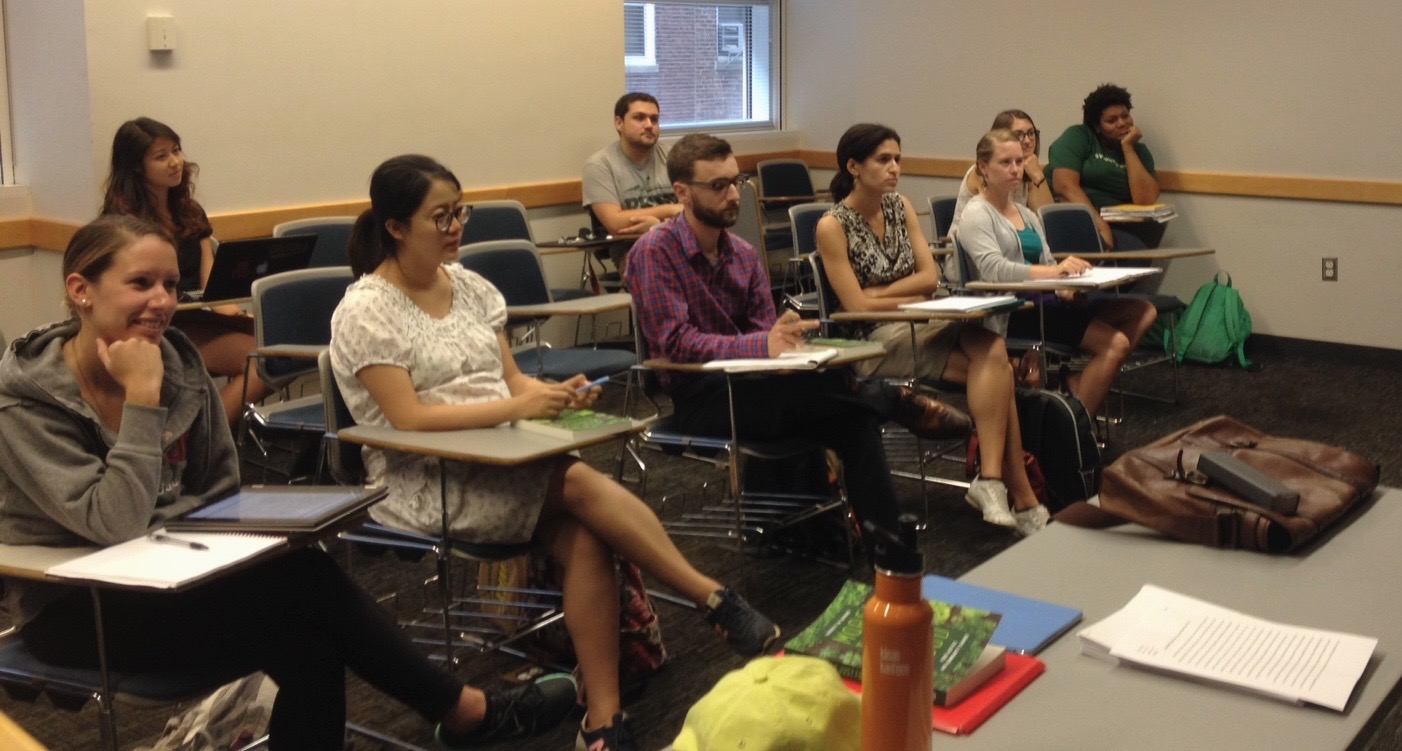Urban food course resonates with students, heightens awareness of policy impacts

During the Summer 2 term, students enrolled in UA 510 Special Topics: Feeding the City: Urban Food, met twice each week to analyze the political, social, and economic structures underlying both global and local food systems. Led by Adjunct Faculty Professor Walter Carroll, PhD, students from different academic fields, including the BU Gastronomy and City Planning and Urban Affairs programs, explored how to implement large-scale interventions to improve agricultural sustainability. Matters of food waste, food deserts or areas with minimal access to fresh food, and hunger or food insecurity were examined from several angles.
“I loved the depth and range of conversations we had about food issues. Professor Carroll did an amazing job of pushing us forward and challenging us to think in more nuanced, holistic ways while also giving us creative outlets like the Food Voice paper. Policymakers could learn a lot from this course because we studied how food connects to a broad range of other issues surrounding public health, economic development, inequality, and discrimination. I would love to see policymakers work towards goals of broader food justice and security,” shared Jacob Harrington (GRS ‘16).

Professor Carroll charged the students to look inward and examine their lifelong relationship to food. Annie Hauck-Lawson developed the concept of the “food voice,” the theoretical concept underlying Gastropolis (Hauck-Lawson and Deutsch, 2010). Students created Food Voice papers to show how the food they chose to procure, prepare, and eat (or not eat) was a greater expression of their overall identity. These Food Voice papers helped students understand how their ethnic and socioeconomic backgrounds greatly impacted how they relate to food as adults.
“For cities to be sustainable, we must examine our food supply and consumption systems. This is an urgent issue that affects all community members and will become increasingly imperative as cities grow. This class challenged us to explore creative ideas, learn from each others’ experiences and knowledge and critically examine urban food structures. I would take this class again in a heartbeat and I hope to explore food issues in the future,” said Kate White (MET’17), a candidate in the Master of City Planning program.
The course culminated with each student submitting a paper on a specific food policy; each topic was deliberated among all class members to garner recommendations for further research and development. Additionally, students addressed the social, economic, and political hurdles stunting equitable, sustainable food policies in the United States and abroad, along with sharing an array of tactics for overcoming these obstacles.
– Courtney Thraen (MET’17)